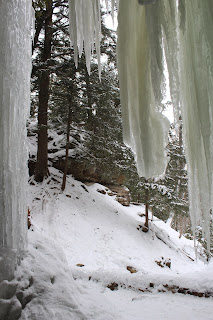Digital nomads are a growing demographic of highly educated online workers that can be anyplace at nearly any time across the globe. Depending on their personality and flavor for the year they may travel to Europe, South American, Africa, or the U.S. Locations that offer something unique. Such locations maintain a proper data infrastructure that can attract digital nomads and utilize their broad abilities not only create new business opportunities but also enhance existing businesses within the area.
Drawing Ideas and Talent
No place can grow without new ideas and those ideas come from others that think differently and have different backgrounds. Bringing in small businesses to populate and popularize downtown goes a long long way in putting the area on the map as a place to live and invest.
Adding on top of that the increasing digital nomad demographic creates further entrepreneurial ideation that often leads to new wealth and ideas for locals. While places like Escanaba/Gladstone in Delta County have a physical location with outdoor tourism appeal it will need visitors and ideas to grow.
The area was known for its mining, paper manufacturing, and low boil tourism. Not much has changed over the past 50+ years and rejuvenating small towns in the U.P and the Midwest will rest in part on reconnecting them to the global supply chain as suppliers versus simple consumers.
Tapping into global trends early to enhance local offers can make a big difference. Digital nomads look for places that inspire them and provide the stimulation they need for their creative work habits and recreational down time. With proper marketing and outreach to improve investments in downtown districts they can attract these nomads to their shores.
You may read the article Tourist Micro-Manufacturing Can Improve Delta County's Manufacturing and Distribution Sectors
The more we can bring in business and digital nomads the easier it will be to reach a threshold where a local hub will begin to grow on its own through enhancing local business with new ideas, investors, and customers. A study of rural digital hubs indicates, we want to "reach the number of users required to generate added value, especially in the rural context." (Rundel, Salemink, & Strijker, 2020).
You may red the article
Multi-Clusters In Delta County Can Create New Innovative IndustriesDelta County Economic Consumers
In a prior article I discussed Adventure Tourism and how that demographic may appeal to a high income educated entrepreneurial class who are not only at a youthful age where they enjoy these activities but also have the money to settle locally and/or start new businesses.
You may read the article Attracting SME Adventure-Venture Capitalism to Delta County (Escanaba & Gladstone) Through Neuroeconomics
The demographic of people the county focuses on attracting can be anything from the casual cross country skier to a more purposeful visitor that wants to stay for a while and set down roots. Typically digital workers make more money and spend more on services than the average. When they own a business they may also be seeking to find a location for operations.
Attracting more wealth into the area not only enhances the local businesses through purchases but also pushes those businesses to stay more relevant to an international community (i.e. tourism micro manufacturing and exports). Innovation is a process of connecting ideas and resources in a place that solve problems.
I can't really discuss in this article the way in which different aspects of clusters interact to feed and support each other (I will save for another where I can put together a basic map of a few sections) but I can say that if your going to attract certain demographics you may want to attract those who capitalize on the natural strengths of the area and are likely to have the longest tale in terms of revenue generation.
A few things that might help the draw in more digital talent and encourage them to engage:
-Focus on international vacationers looking for places to enjoy the outdoors and work digitally.
-Short term housing, hotel and AirBnB rentals.
-Free Internet in the downtown area.
-Easy auto rental and cab/Uber access.
-Coffee shops, bars and restaurants in the downtown area.
-A culture of openness that seeks to draw in skilled talent from across the globe.
-Temporary (day, week, month) short-term office rentals for small businesses and travelers.
-Policing and law enforcement that follows basic universal human rights.
-A marketing campaign that seeks to attract SME manufacturers and tourist mico-manufacturers to create themed "uniqueness" of the area.
-Activities, events, and attractions that not only draw in people from the local area but also provide entertainment for visitors.
-Affordable living costs.
-Local government that encourages investment in the area.
-Reaching out to other digital nomad destinations to market and offer another destination (partnerships) for visitors.
-A walkable and shoppable downtown area.
The work is part of a larger theoretical work on innovation and transactional clusters with Delta County as an example. HERE.
Rundel, C. T., Salemink, K., & Strijker, D. (2020). Exploring Rural Digital Hubs and Their Possible Contribution to Communities in Europe. Journal of Rural & Community Development, 15(3), 21–44
Cowie, P., Thompson, N., & Rowe, F. (n.d.). Honey pots and hives: Maximising
the potential of rural enterprise hubs. United Kingdom: Centre for Rural
Economy, Newcastle University.






